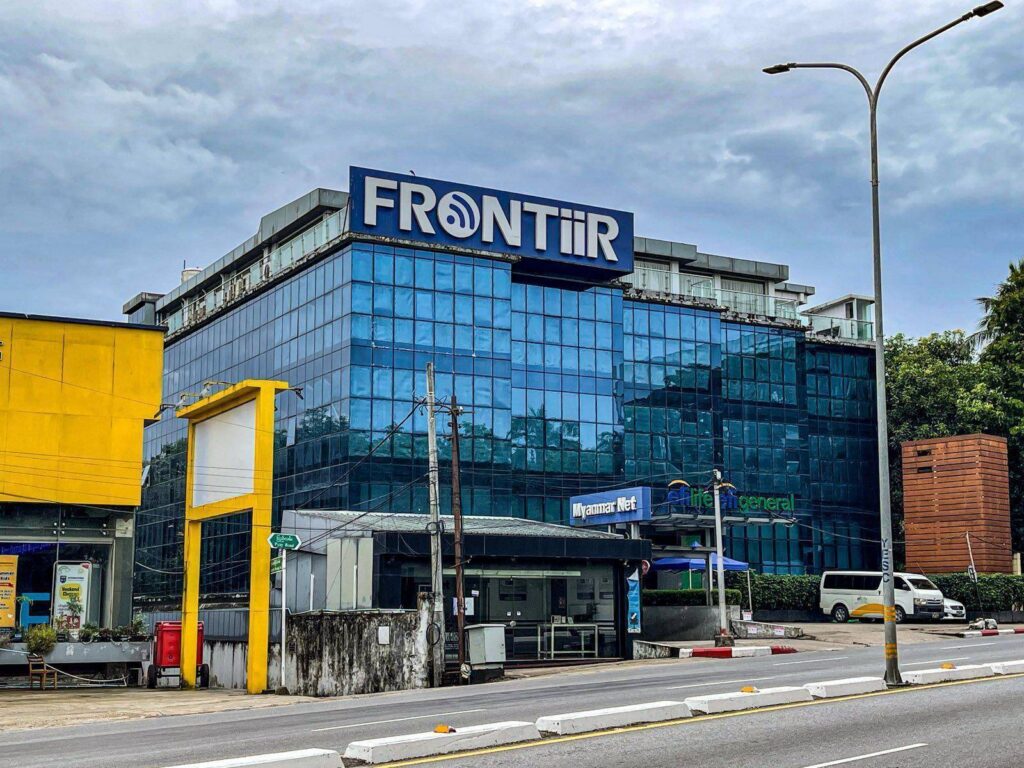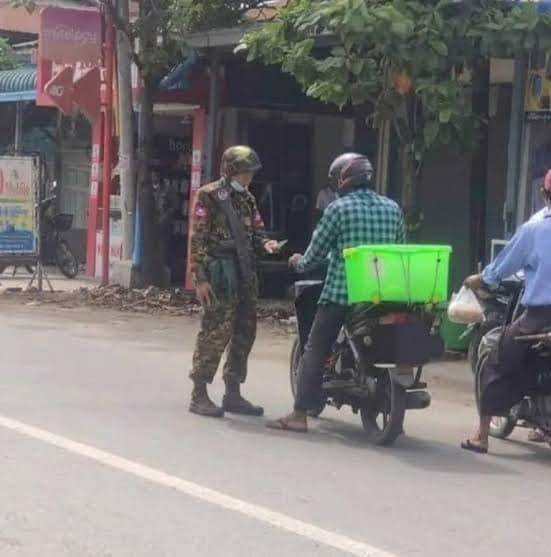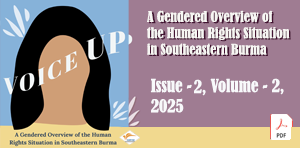Junta’s Digital Crackdown in Mon State: Silencing Voices and Cutting Virtual Lifelines Ahead of Sham Election
August 28, 2025
HURFOM: In recent months, the junta has deepened its assault on freedom of expression and the right to information in Mon State and across southern Burma. As the military prepares for a widely condemned sham election, vast sums of money and human resources are being poured into sophisticated technology and surveillance tools designed to cut off the last remaining lifelines civilians rely upon to access the outside world.
HURFOM spoke with both local technology experts and victims of these policies in Mon State. Their testimonies confirm what Burmese media agencies and HURFOM’s own field reports have long warned: the military is weaponizing technology to repress communities, punish dissent, and erase truths from reaching the public.
At the heart of this crackdown are powerful gateway firewalls installed at the country’s main internet entry points. Described by one IT professional as “digital gates at the border,” these systems filter every connection and can detect and block VPNs or encrypted applications, such as Signal. Technical sources confirmed that the system is reportedly supplied by Geedge Networks (Jizhi), a Chinese company linked to the architect of the Great Firewall of China.

Additionally, the junta deploys Deep Packet Inspection (DPI), a method that inspects the contents of internet traffic—even encrypted traffic—to identify VPN patterns. “It’s like opening every letter before it’s delivered,” one expert told HURFOM. Investigations revealed DPI equipment installed inside local internet service providers such as Frontier, where junta cyber teams are believed to have remote access to monitor and intercept civilian web activity.
Beyond the high-tech controls, repression reaches the streets. Civilians report being stopped by soldiers or police in towns across Mon State, their phones inspected for VPN applications. Fines, intimidation, and even arrests follow. According to HURFOM’s monitoring, dozens of such incidents have been documented since the Junta announced its new Cybersecurity Law, which came into force on 1 January 2025.
This law criminalizes the use of unauthorized VPNs, imposes jail sentences, and requires tech companies to store user data for years, subjecting it to military requests. “It feels like they want to make fear itself the law,” said a young woman from Ye Township who was fined after being caught with a VPN app.
The Junta has also expanded its wider surveillance infrastructure, including the installation of CCTV cameras in cities, stricter SIM card registration requirements, and digital ID schemes that facilitate the tracing and targeting of individuals. Together, these create what experts describe as an “electronic umbrella,” sealing off civilians from private communication.
For people in Mon State, VPNs and encrypted platforms were never luxuries—they were lifelines. Civilians used them to read independent news, contact journalists, coordinate with civil society, and maintain fragile connections to loved ones in exile. Now those pathways are being closed.
“I used to send updates about airstrikes in my area to a group of journalists. Now, with VPNs blocked and surveillance everywhere, I don’t dare. But it means no one knows what is happening to us,” said a villager from Yebyu Township, who has lived under constant shelling.
HURFOM’s monthly situation updates confirm the scope of this repression. Between January and June 2025 alone, dozens of cases of violations against the right to free expression were documented, including arbitrary arrests for online activities, internet cuts, and detentions linked to VPN usage. In February 2025, for example, at least 182 people were arrested and 135 detained, many on accusations of “sharing unlawful information” online. By April, 310 were arrested and 185 detained in further crackdowns.
The timing of this sweeping digital repression is no accident. As the junta moves to stage a sham election in 2025, its strategy is clear: silence critical voices, block independent media, and control the narrative. The systematic investment in foreign surveillance technology, unlawful enforcement of cyber laws, and the militarization of internet service providers represent not just censorship, but a deliberate campaign to deny civilians their rights to know, to speak, and to inform.
“Mon State is becoming an information desert,” warned one local activist. “Without secure communication, people are left voiceless, isolated, and unable to defend their rights.”
A legal aid member in Mawlamyine, Mon State, who asked not to be named for security reasons, described the situation in stark terms:
“What is unfolding in Mon State is more than a digital crackdown; it is an attack on the very essence of human dignity. By denying access to truthful information, criminalizing communication, and stripping away privacy, the Junta is violating fundamental rights guaranteed under international law.”
He went on to explain the devastating consequences of the junta’s cyber policies:
“For ordinary people, these restrictions mean living in constant fear. A simple act, such as opening a news site or sending a message, can put you at risk of arrest. Families are cut off from knowing what is happening in their own communities, and young people—who once used VPNs to study, to share their voices, or to dream of a better future—are now silenced. The junta’s digital war has made people feel isolated, powerless, and voiceless in their own land.”
HURFOM calls for urgent attention from the international community to condemn and resist these unlawful acts. The freedom to speak, to know, and to connect are not privileges; they are lifelines, and they are being cut before the eyes of the world.




















































